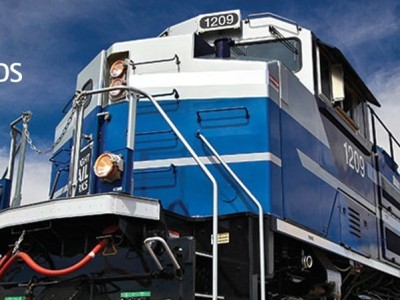UK border reopens, trucks move after French blockade lifts
Vital trade and travel links between the U.K. and continental Europe slowly reopened after France lifted a blockade at Britain’s busiest port that heightened a sense of economic isolation as the pandemic worsened and a high-stakes political drama unfolded over Brexit.
European Union citizens and residents able to show negative Covid-19 tests will be able to travel from the U.K., according to French Prime Minister Jean Castex. Ferries arriving from Calais and the trucks they carry were moving in the early hours of Wednesday morning, and those transporting fresh foods asked for priority clearing the backlog.
Near Dover, police clashed with some truckers angry that they’ve been waiting since Saturday and are trying to get home for Christmas. Many are lined up for coronavirus tests that they need for passage into France.
France cut off shipments from Dover in southeast England on Sunday because of concern over a faster-spreading variant of Covid-19 that prompted the U.K. government to lock down London and surrounding areas.
What followed was 48 hours of cross-Channel political bartering over the reopening of routes just as negotiations with the EU over a post-Brexit trade deal intensified. With less than 10 days to go before a transition period ends on Dec. 31, the upheaval gave a sampling of the potential pain Britain’s closest continental neighbor can unleash.
The U.K. found itself effectively isolated as more than 40 countries restricted flights, including many EU members. On Wednesday, the Nikkei reported that Japan will suspend all foreign arrivals from the U.K. while the Philippines will halt all flights from Dec. 24 to Dec. 31 to prevent the spread of the new coronavirus variant. India, Hong Kong and Singapore have implemented similar measures.
Almost 3,000 trucks have been stuck in southeast England, lined up on the side of the highway and the tarmac of a local airport—a logjam that threatened the supply of some fresh food items in British supermarkets. German airline Deutsche Lufthansa AG said it would airlift fresh produce to the U.K. on Wednesday to ease any potential shortages.
Testing Talks
British Prime Minister Boris Johnson called French President Emmanuel Macron on Monday to try to find a solution and both sides had promised to resolve the border issue within hours. Instead, the impasse dragged on over a disagreement on how to ensure truck drivers were not carrying the new coronavirus strain into France.
The French side was pushing for haulers to take PCR tests, which give a result in 24 to 48 hours, two people familiar with the matter said. But the U.K. government’s statement Tuesday said truckers will be subject to lateral tests, which take only about 15 minutes but are less accurate.
The British military and National Health Service will establish multiple testing sites in Kent, the county where Dover is located, Sky News reported.
The new travel restrictions will apply until at least Jan. 6, the French government said. The British side asked to publish any announcement late in the day to avoid too many trucks driving to Kent, according to a person familiar with the matter.
“Truckers shouldn’t, and it’s important, gather at departure points in Kent to avoid saturating the system we’re putting into place,” Jean-Baptiste Djebbari, French junior transport minister, told BFM TV.
U.K. Transport Secretary Grant Shapps echoed that request in a statement on Tuesday evening. “This protocol will see the French border reopen to those traveling for urgent reasons, provided they have a certified negative Covid test,” Shapps said. “We continue to urge hauliers not to travel to Kent until further notice as we work to alleviate congestion at ports.”
Isolating Britain
Doug Bannister, chief executive of the Port of Dover, said earlier that the backlog of cargo could be quickly cleared once France reopens its border. After a security-related shutdown was lifted in September, 4,500 trucks boarded ferries in just 12 hours, he said.
The Scottish Salmon Producers Organisation appealed for the government to prioritize the movement of perishable freight. “Our producers have lost millions of pounds since the border was closed on Sunday night,” Tavish Scott, the group’s chief executive, said in a statement.
Non-essential travel between the U.K and the EU is set to be temporarily restricted anyway from Jan. 1, when Britain leaves the continent’s customs union. As a so-called third country, the U.K. will be subject to Covid-related restrictions.
With 2021 looming, the broader contours of Britain’s future relationship with the EU are still being thrashed out by negotiating teams holed up in Brussels trying to finalize a trade deal.
The EU’s chief Brexit negotiator, Michel Barnier, said Britain and the EU are giving negotiations on a trade deal “a final push,” while officials on both sides talked of a possible agreement as soon as Wednesday.
Similar Stories
SC Ports Weather Advisory for Jan. 23, 2025
Due to inclement weather, SC Port terminals in Charleston will be closed for motor carriers on Thursday, January 23, 2025. Inland Port Dillon and Inland Port Greer will operate under…
View ArticleZM Trucks announces new manufacturing plant and HQ in Fontana, CA
ZM Trucks, North America’s newest zero-emissions commercial truck brand, proudly announces the establishment of its first North American manufacturing plant in Fontana, California. This significant milestone also marks the relocation…
View Article
AAR reports rail traffic for the week ending January 18, 2025
View Article
North Carolina Ports: Winter Weather Notice
View ArticleUSDOT appoints WSP’s Nate Bryer to Advisory Board considering road usage charging
The U.S. Department of Transportation appointed Nate Bryer, WSP senior vice president and road usage charging (RUC) business lead, to its new Federal System Funding Alternative (FSFA) Advisory Board, a…
View Article
Onne Multipurpose Terminal invests in new cranes
View ArticleGet the most up-to-date trending news!
SubscribeIndustry updates and weekly newsletter direct to your inbox!





